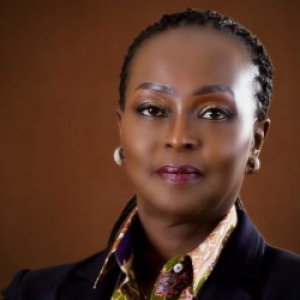Honourable Brigadier (Ret'd) Mark Phillips, Prime Minister of the Cooperative Republic of Guyana;
Col. Nazrul Hussain, Director, Civil Defense Commission;
Directors and country representative from the different National Disaster Risk Management Offices in the Caribbean region, CDEMA Representatives,
United Nations, World Bank colleagues,
Good morning and welcome to today’s regional consultation on Improving governance of Multi-Hazard Early Warning Systems (EWSs).
Successful EWSs save lives and jobs, land and infrastructures. They support long-term sustainability.
That is why earlier this year, on World Meteorological Day, the UN Secretary-General announced that the United Nations would spearhead new action to ensure every person on Earth is protected by early warning systems within five years. He tasked UN agencies, whose representatives are here today, to present an action plan at the UN climate conference, COP 27 coming up in November in Egypt – an action plan that would see to it that everyone all around the world is covered by early warning systems in the coming five years.
Ladies and Gentlemen, in committing to do so, the United Nations subscribes to the maxim that early warning systems, just like health or education are a vital enabler of development, of people’s right to live prosperous and meaningful lives. In other words, early warning systems join global calls for universal health coverage or education for all within the rubric of our collective efforts to leave no one behind as countries, including Guyana, get back on track to achieve the Sustainable Development Goals that include among others the targets of the Sendai Framework of Action.
As the audience in this room is familiar, EWSs traditionally entail 4 pillars of work: 1. Risk knowledge through systematic collection of data; 2. Detection and forecasting of hazards and their potential consequences; 3. Dissemination and communication of authoritative, timely and actionable warnings and likelihood of impacts and of course; 4. Preparedness at all levels to respond to warnings received.
At the outset, I likened EWSs to universal health coverage and education for all as a key enabler of development and people’s right to live long, healthy and productive lives. In my experience as a development practitioner, especially working in middle – and now an increasingly higher income country, I have seen that the most persistent development challenges are overcome when sound and good governance practices are in place. People get healthier not because there are more hospital beds but because in schools or in agriculture, institutions cooperate to have the intent and mutual accountability to promote healthy lives, eating, to make healthy, affordable food accessible.
That is why today’s workshop is critical. It is about a possible fifth pillar of good EWS work. It recognizes that governance and institutional arrangements across multiple sectors and different actors, across an ecosystem of actors, enables effective and successful EWSs - EWSs that translate into early action.
Countries that promote disaster risk reduction and climate change adaptation plans and that build on complementarities between disaster risk reduction efforts and other national development plans, for example in our case the Low Carbon Development Strategy, enable far better and more effective local action.
The same imperative for cross sectoral, institutional governance for effective Multi Hazard Early Warning systems within countries, applies to regional efforts as well. Regional coordination, especially in our corner of the world, is essential for strengthening early warning-early actions and local resilience. That is why I am especially thrilled today to see representatives from countries across the CDEMA universe here including of course CDEMA representatives with whom the UN -especially my colleague in Barbados- has a long-standing partnership.
Your presence here today is testimony to this understanding that good and effective governance at local, national and regional levels between an ecosystem of institutions is that essential link for translating early warnings into early action.
I would like to take advantage of this opportunity to commend the Government of Guyana, for their vision and engagement on reducing disaster risk in the country as it has been nationally expressed in the Guyana Country Work Programme which the Hon. Prime Minister led. Thank you, Prime Minister.
I encourage Guyana to work closely with my UNDRR colleagues and others here today, such as WMO, World Bank to take advantage of the global momentum behind EWSs to strengthen the disaster risk resilience of Guyana’s remarkable development trajectory as encapsulated in the Low Carbon Development Strategy.
I applaud and encourage the continued work of many other parts of the Government of Guyana working with other UN entities towards disaster risk reduction. For example, the work of the Ministry of Agriculture with the UN’s Food and Agriculture Organization (FAO) in climate smart practices so that farmers can continue to bring healthy food to consumers even when confronting climate induced disasters such as the floods we endured last year. Or the work of the Ministry of Social Services with the World Food Program in disaster proofing social assistance schemes. Or the work that UNDP is advancing for gender responsive disaster resilience and women’s disaster management capacities. All these efforts, made possible by the generous contributions of Guyana’s international partners, notably Canada, speak to the inter-sectoral nature of successful disaster risk management.
Similarly, I would like to thank the different Directors and country representatives from the different National Disaster Risk Management Offices in the Caribbean region for your work and your partnership with the UN. Your work and willingness to coordinate efforts are ensuring that we are having a multi-hazard approach to risk, and through it, to early warning systems, including through the improvement of governance mechanisms.
I am very confident that with all of the expertise and knowledge that is reunited in these two days meeting, we will be able to jointly achieve the objectives that have been identified for this meeting.
I wish you all a very productive meeting which outcomes will benefit all people of the Caribbean region.
Thank you for your attention.



